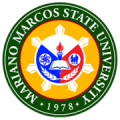
About MMSU
The Business Directorate
The Business Directorate includes Food Service, Accomodation and Agribusiness. Food Service includes operation of the cafeteria, satellite canteens and catering services. The Accomodation section includes operation of dormitories, rental housing, mansion and the hostel. Agribusiness includes meat processing and Iloko vinegar production, piggery, poultry (layers), rice and other dry season crops, pomology/vegetables and university share. there are long-term projects which include water refilling station, small ruminants, cattle, fishponds and floriculture.
Rentals of properties like lands, fishponds, academic gowns, equipment and facilities of the University are likewise contributing to the income generation.
in as much as academic and non-academic units are encouraged to participate in income-generation, projects undertaken by these units include uniform sewing, bookbinding, t-shirt printing and ink-refilling.
Goals
- Maximize productivity and efficiency in the IGPs that should push income to optimum levels.
- Produce income that shall sufficiently provide the needs of the University that shall reduce if not eliminate dependence from government subsidy.
- Strengthen further the trilogy functions of the instruction, research and extension through more responsive IGPs.
- Create a culture of entrepreneurship among University constituents by providing them means and avenues to produce and market their products.
- Showcase applied technologies that shall influence and touch the lives of more people.
Thrusts
- Quality products and service toward generating more income and patronage especially in the food and accomodation services.
- Utilization of projects for practicum work of students and extension clients on management and application of learned concepts as well as technologies generated and for research.
- Capital investments and expansion of projects for maximum economic impact.
- Financing new income generating projects that have substantial economic impact.
- Participation of home industries as cooperators in University projects and in the marketing of theis products.
- Participation of faculty and staff in their private capacity in the income generating projects of the University like lease of properties for private enterprise.
OP Memo No. 22-049 Policies Rules and Regulations Governing the Occupancy MMSU Housing Facilities
SUMMARY OF RENTAL RATES OF FACILITIES, EQUIPMENT, LAND
| FACILITIES | RENTAL RATE | |
| 1 | University Mansion terrace and living room | P2,500 per 4hrs |
| 2 | University Mansion transient rooms | P500/head/night |
| 3 | MMSU Hostel messhall | P2,500 per 4hrs |
| 4 | MMSU Hostel Function hall | P4,000 per 4hrs |
| 5 | MMSU Hostel transient rooms | P600/head/night; for single room occupancy, P1,000/night |
| 6 | MMSU UBRC Training hall | P4,000 per 4hrs |
| 7 | MMSU UBRC messhall | P2,500 per 4hrs |
| 8 | MMSU UBRC Transient rooms | P500/head/night; for single room occupancy, P1,000/night |
| 9 | MMSU Teatro Ilocandia | P7,500 per 4hrs |
| 10 | Gymnasiun basement | P2,500 per 4hrs |
| 11 | Sunken garden/commencement grounds | P 9,000 per 4hrs( night time); P 7,000 per 4hrs (daytime) |
| 12 | FEM park | P 8,000 per 4hrs( night time); P 6,000 per 4hrs (daytime) |
| 13 | MMSU Covered court | P4,000 per 4hrs |
| 14 | MMSU Student center | P4,000 per 4hrs |
| 15 | MMSU NACIDA building | P4,000 per 4hrs |
| 16 | MMSU Lagoon | P2,000 per 4hrs |
| 17 | MMSU CTE social hall | P2,000 per 4hrs |
| 18 | CTE Magnolia residence mess hall | P2,000 per 8hrs |
| 19 | CTE Magnolia student residence hall | P600/student/month |
| 20 | CTE Magnolia dorm international wing (for local clients) | P300/head/night |
| 21 | CTE Magnolia dorm international wing (for foreign clients) | |
| 22 | Quadruple (4 pax/room) | P4,800/student/month |
| 23 | Triple (3 pax/room) | P6,300/student/month |
| 24 | Double (2pax/room) | P7,700/student/month |
| 25 | Single (1pax/room) | P9,200/student/month |
| 26 | Classrooms with Aircon | P1,000 per 8hrs |
| 27 | MMSU Sip Hub | P2,500 per 4hrs |
| 28 | MMSU swimming pool w/ shower (swimming activity) | P75 per head per 4hrs session |
| 29 | MMSU swimming pool side with gazebo as venue | P10,000 per 4 hrs |
| 30 | MMSU swimming pool Function hall only | P 6,000 per 4 hrs |
| 31 | MMSU swimming pool transient rooms w/ swimming | P500/head/night |
| 32 | MMSU swimming pool with gazebo & function hall | P15,000 per 4hrs |
| 33 | Dormitory for 4Ps building 1 (for foreign students) | P2,000/student/month |
| 34 | Dormitory for 4Ps building 1 w/common CRs (for Local students) | P700/student/month |
| 35 | Dormitory for IPs building w/ CRs inside the rooms (for Local students) | P800/student/month |
| 36 | CoEds dormitory-Batac Campus | P300/student/month plus electricity for appliances/gadgets |
| 37 | Ladies residence hall-Batac Campus | P300/student/month plus electricity for appliances/gadgets |
| 38 | Auxiliary buildings | P6,000/month excluding electricity |
| 39 | CTE Kiosks | P2,000/month excluding electricity |
| 40 | Space for rent in Colleges-Batac Campus | P2,000/month excluding electricity |
| 41 | Space for rent in CAFSD Dingras Campus | P1,000/month excluding electricity |
| 42 | Rental Housing building 1 to 4 | P300/unit/month excluding electricity |
| 43 | West Apartments | P540/unit/month excluding electricity |
| 44 | PCAARRD Housing units | P780/unit/month excluding electricity |
| 45 | Duplex Housing Units | P780/unit/month excluding electricity |
| 46 | East Apartments | P840/unit/month excluding electricity |
| 47 | Old Bodega building beside Mansion | P400/300/180/unit/month excluding electricity |
| 48 | Cottage (Northeast of Gymnasium) | P300/unit/month excluding electricity |
| 49 | Balay Ti Away | P180/month excluding electricity |
| 50 | CASAT dorm for students | P300/head/month |
| 51 | CASAT dorm for Faculty | P500/occupancy |
| 52 | CASAT Cottage (whole lobby plus 2 rooms) | P2,500/24 hrs (in excess of 12 occupants, P50/head) |
| 53 | CASAT Cottage (whole lobby plus 1 room only) | P1,500/24 hrs (in excess of 6 occupants, P50/head) |
| 54 | CASAT Cottage (whole lobby only) | P1,000/occupancy |
| 55 | CASAT basketball court | P2,500/occupancy |
| 56 | CASAT grounds | P2,000/occupancy |
| 57 | CASAT Big picnic shed | P2,000/occupancy |
| 58 | CASAT Student Center | P500/occupancy |
| 59 | CASAT Picnic Sheds (small) | P500/unit/occupancy |
| 60 | CASAT Classrooms | P1,500/room/8hrs |
| 61 | CASAT FTC hall | P1,500/4 hrs |
| 62 | Space rental grounds (4x4 sq m) (during Unigames) | P300/concessionaire/day excluding electricity |
| 63 | Monobloc Chairs | P5/piece/use |
| 64 | CASAT Diving gears :Mask and Snorkel | P350 |
| 65 | Booties | P100 |
| 66 | Wet Suit | P250 |
| 67 | Bouyancy Belt | P350 |
| 68 | Weight Belt | P50 |
| 69 | Regulator Console | P450 |
| 70 | Full Scuba Tank | P250 |
| 71 | Airfill Refill | P170 |
| 72 | Life Vest | P100 |
| 73 | CASAT Banca ride | Negotiable depending on route |
| 74 | CBEAT Tent & Space rental-Food | P11,000/concessionaire for the whole duration of Trade Fair exclusive of electricity |
| 75 | CBEAT Tent & Space rental-Furniture | P13,000/concessionaire for the whole duration of Trade Fair exclusive of electricity |
| 76 | CBEAT Tent & Space rental-RTW, Accessories & Others | P10,000/concessionaire for the whole duration of Trade Fair exclusive of electricity |
| 77 | CBEAT Space rental only-Food | P9,000/concessionaire for the whole duration of Trade Fair exclusive of electricity |
| 78 | CBEAT Space rental only-Furniture | P11,000/concessionaire for the whole duration of Trade Fair exclusive of electricity |
| 79 | CBEAT Space rental only-RTW, Accessories & Others | P8,000/concessionaire for the whole duration of Trade Fair exclusive of electricity |
| 80 | University Share (Land rentals) for farmer cooperators | 25% Land share |
Dear Valued Client,
We will be introducing our newly upgraded website on October 31, 2024 – offering faster access, improved navigation, and enriched content for students, faculty, partners, and stakeholders. Experience how we cultivate minds and transform futures at MMSU.

 CAFSD
CAFSD CASAT
CASAT CAS
CAS CBEA
CBEA CCIS
CCIS COE
COE CHS
CHS CIT
CIT CTE
CTE COM
COM CVM
CVM Graduate School
Graduate School